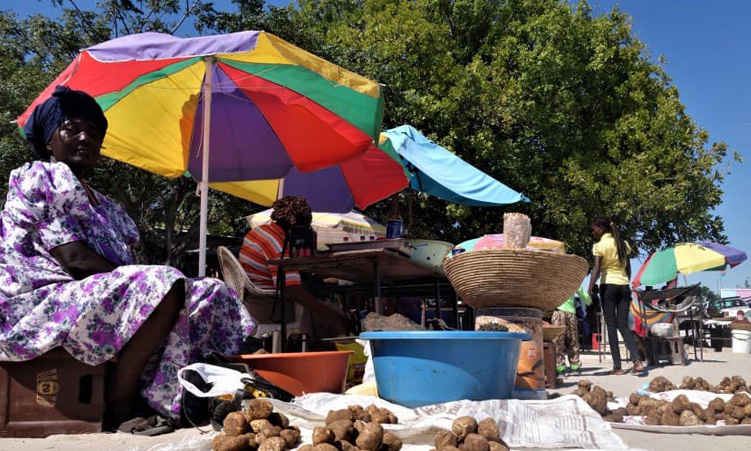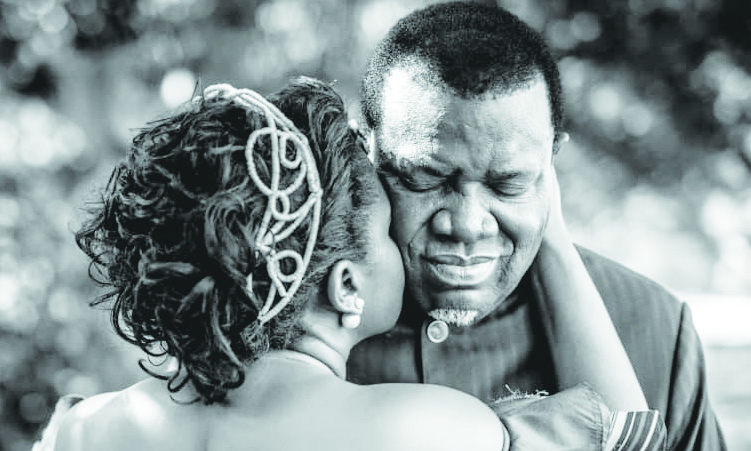KANO, Nigeria – The emir of Kano strolls regally along the red carpet with a silver-tipped staff and a jewelled turban that looks like a disco ball, as commoners bow and scrape in his wake.
He mounts a white steed behind the scarlet palace walls. Then he leads thousands of Muslim warriors mounted on horses in a charge through this massive African city, waving lances and firing loaded muskets in what is now an annual ceremony.The event, held in honour of the emir, attests to the power and image these Islamic rulers still enjoy in northern Nigeria.The emirs – the word is Arabic for “commander” or “prince” – hold sway over more than 70 million subjects as heads of a dozen or so emirates across the region.They are sometimes criticised for acting like kings in what is now a democracy.Yet they also play an important role in warding off religious fundamentalism, and the strident, hard-line Islam common to other countries outside West Africa does not have a foothold here.Across Africa, there are endless numbers of tribal chiefs, clan leaders and regional headmen who enjoy popular support but little real power.Some nations, like Swaziland, retain their monarchs.In others, kings are revered figureheads, like the leader of the Ashanti people of Ghana.In northern Nigeria, the emirs have no control over mechanisms of the state such as the police, taxation or criminal justice.But they receive five per cent of all funds given to local government.The emir of Kano, whose name is Ado Bayero, boasts the most followers, about 14 million.He is considered to be extremely wealthy – although total annual government receipts aren’t released – and he has four wives and dozens of concubines.The wealth can rankle.The governor recently gave local chieftains under the emir dozens of new Toyota Land Cruisers, prompting a group of youths to stone his motorcade to protest what they called misuse of funds.The emirs are also sometimes considered as throwbacks in a nation where officials are supposed to be elected.”The greatest challenge we face as a democratic nation is strengthening our government structures,” says Attahiru Jega, the vice chancellor of Kano’s Bayero University.”I recognise (traditional rulers) as great symbols, but …they have been a hindrance in our country.”At the same time, the emirs wield considerable power as the top Islamic figures in their regions.The annual “durbar” ceremony in Kano is a re-enactment of an Islamic jihad that swept the region two decades ago, and the emirs are considered descendants of the jihadi leaders.In the traditional durbar display, thousands of horsemen in spangled and colourful outfits ride through the streets of Kano.The emirs choose the imams of the main mosques and so control what kinds of sermons followers hear.They have publicly denounced Osama Bin Laden.The emirs also oversee the Shariah court system, which rules based on Islamic civil law.In northern Nigeria, governors have imposed the Shariah system, some as recently as seven years ago, in a bid to harness their political fortunes to religious sensibilities.Emirs step in at moments of crisis to mediate inter-religious violence or land disputes before they spiral out of control.And politicians look to them for legitimacy, asking the traditional leaders to weigh in on policy decisions.For example, an emir can help push through a road construction project by convincing angry farmers who don’t respect their government to give up land for the highway.In Kano, a city of about four million people, the emir hears petitioners during public audiences.But he rarely speaks directly to them or to the media, and passes down rulings through court aides instead.While the old city walls are little more than slag heaps these days, the presence of the emir is as obvious here as the open sewers festering with human waste uncollected by Nigeria’s faltering modern state.For a while the emirs have not provided services to the public since the country’s independence, the politicians who came after haven’t either.Kano’s streets are strewn with trash and schools and clinics are rundown, if they exist at all.”There must be a change in the future.Military rule has failed.Civilian rule and democracy is failing,” says Abba Bashir Yola, a 43-year old personal assistant to the emir of Kano.”We should go back to the traditional chiefs, who have discipline, good sense.”Nigeria’s emirates date back to the early 1800s, when a jihadi leader called Usman Dan Fodio grew disgusted with lax enforcement of Islamic principles across the north and set out with his followers from the city of Sokoto to establish a new order.After conquering much of the region on horseback, Dan Fodio left behind the emirs.The emirs ruled over their regions and acted as the supreme religious authorities in those areas – a comparatively rare relationship in Africa, where monotheistic religions were usually imposed from outside.In the mid-1800s British colonialists conquered the southern, Christian areas, forever weakening tribal structures there.But in the north, where Islam reigned, the colonialists ruled by proxy through the emirs.British Queen Elizabeth II visited the emir of Kano in 1956 to watch the traditional durbar.Then came independence in 1960, and Nigeria became a secular nation of 250 ethnic groups divided between Christianity and Islam.The emirs still represent for many people in northern Nigeria a link to a more-storied past, when they were part of a great Islamic kingdom rather than just the northern half of a failing modern state.Some wish the ceremonial horsemen would ride again, for real.”The emir is honest and good.We like him better than these politicians,” says Auwal Dankaka, a 30-year-old street trader.”The governor may be stronger, but I would vote for the emir over him.”Nampa-APThen he leads thousands of Muslim warriors mounted on horses in a charge through this massive African city, waving lances and firing loaded muskets in what is now an annual ceremony.The event, held in honour of the emir, attests to the power and image these Islamic rulers still enjoy in northern Nigeria.The emirs – the word is Arabic for “commander” or “prince” – hold sway over more than 70 million subjects as heads of a dozen or so emirates across the region.They are sometimes criticised for acting like kings in what is now a democracy.Yet they also play an important role in warding off religious fundamentalism, and the strident, hard-line Islam common to other countries outside West Africa does not have a foothold here.Across Africa, there are endless numbers of tribal chiefs, clan leaders and regional headmen who enjoy popular support but little real power.Some nations, like Swaziland, retain their monarchs.In others, kings are revered figureheads, like the leader of the Ashanti people of Ghana.In northern Nigeria, the emirs have no control over mechanisms of the state such as the police, taxation or criminal justice.But they receive five per cent of all funds given to local government.The emir of Kano, whose name is Ado Bayero, boasts the most followers, about 14 million.He is considered to be extremely wealthy – although total annual government receipts aren’t released – and he has four wives and dozens of concubines.The wealth can rankle.The governor recently gave local chieftains under the emir dozens of new Toyota Land Cruisers, prompting a group of youths to stone his motorcade to protest what they called misuse of funds.The emirs are also sometimes considered as throwbacks in a nation where officials are supposed to be elected.”The greatest challenge we face as a democratic nation is strengthening our government structures,” says Attahiru Jega, the vice chancellor of Kano’s Bayero University.”I recognise (traditional rulers) as great symbols, but …they have been a hindrance in our country.”At the same time, the emirs wield considerable power as the top Islamic figures in their regions.The annual “durbar” ceremony in Kano is a re-enactment of an Islamic jihad that swept the region two decades ago, and the emirs are considered descendants of the jihadi leaders.In the traditional durbar display, thousands of horsemen in spangled and colourful outfits ride through the streets of Kano.The emirs choose the imams of the main mosques and so control what kinds of sermons followers hear.They have publicly denounced Osama Bin Laden.The emirs also oversee the Shariah court system, which rules based on Islamic civil law.In northern Nigeria, governors have imposed the Shariah system, some as recently as seven years ago, in a bid to harness their political fortunes to religious sensibilities.Emirs step in at moments of crisis to mediate inter-religious violence or land disputes before they spiral out of control.And politicians look to them for legitimacy, asking the traditional leaders to weigh in on policy decisions.For example, an emir can help push through a road construction project by convincing angry farmers who don’t respect their government to give up land for the highway.In Kano, a city of about four million people, the emir hears petitioners during public audiences.But he rarely speaks directly to them or to the media, and passes down rulings through court aides instead.While the old city walls are little more than slag heaps these days, the presence of the emir is as obvious here as the open sewers festering with human waste uncollected by Nigeria’s faltering modern state.For a while the emirs have not provided services to the public since the country’s independence, the politicians who came after haven’t either.Kano’s streets are strewn with trash and schools and clinics are rundown, if they exist at all.”There must be a change in the future.Military rule has failed.Civilian rule and democracy is failing,” says Abba Bashir Yola, a 43-year old personal assistant to the emir of Kano.”We should go back to the traditional chiefs, who have discipline, good sense.”Nigeria’s emirates date back to the early 1800s, when a jihadi leader called Usman Dan Fodio grew disgusted with lax enforcement of Islamic principles across the north and set out with his followers from the city of Sokoto to establish a new order.After conquering much of the region on horseback, Dan Fodio left behind the emirs.The emirs ruled over their regions and acted as the supreme religious authorities in those areas – a comparatively rare relationship in Africa, where monotheistic religions were usually imposed from outside.In the mid-1800s British colonialists conquered the southern, Christian areas, forever weakening tribal structures there.But in the north, where Islam reigned, the colonialists ruled by proxy through the emirs.British Queen Elizabeth II visited the emir of Kano in 1956 to watch the traditional durbar.Then came independence in 1960, and Nigeria became a secular nation of 250 ethnic groups divided between Christianity and Islam.The emirs still represent for many people in northern Nigeria a link to a more-storied past, when they were part of a great Islamic kingdom rather than just the northern half of a failing modern state.Some wish the ceremonial horsemen would ride again, for real.”The emir is honest and good.We like him better than these politicians,” says Auwal Dankaka, a 30-year-old street trader.”The governor may be stronger, but I would vote for the emir over him.”Nampa-AP
Stay informed with The Namibian – your source for credible journalism. Get in-depth reporting and opinions for
only N$85 a month. Invest in journalism, invest in democracy –
Subscribe Now!






